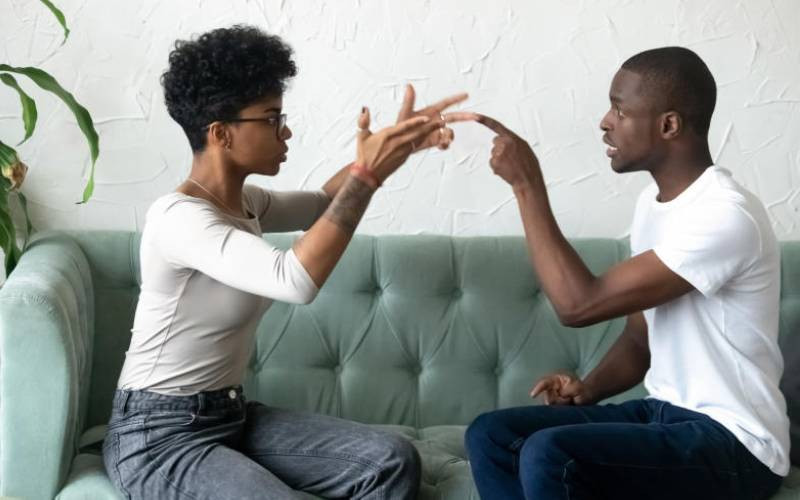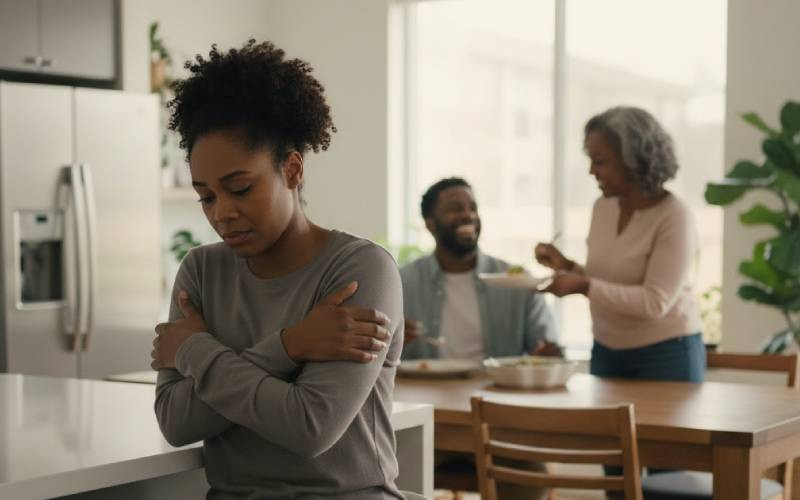
Good friends are important for our mental health -- they help us make better decisions, deal with stress and help us to rebound from setbacks. In the spirit of International Friendship Day, below are ways to be there for our buddies.
What is friendship? If you had asked Greek philosopher Aristotle, he would have said, “A single soul dwelling in two bodies”.
Pythagoras was more subtle. He said: “Friends are like companions on a journey; who ought to aid each other to persevere in the road to a happier life.”
On friendship, we all have nuances. But they all lead to a place of genuine love and care.
Evelyn Sian and Evelyn Mwenda are best friends. The two hike together, go out together, attend each other’s events, counsel each other, and ask each other’s opinion and so on.
“But beyond that, we are real with each other. We tell each other the truth. No lies. If something is good, we say it is. If it is stinking, we say it is stinking,” Sian says.
Their friendship, slightly older than three years, happened spontaneously.
“We first met online. We were part of a group. Then I invited her for a hike and she joined. We began doing things together. Our worlds just gelled spontaneously. I was not looking for a best friend neither was she,” Mwenda says.
The two also make deliberate effort to be present when one of them is in need.
“Almost always, when she calls and says she has a family event, I will attend and even help out with chores. She does the same for me. But when we can’t show up because we are held up somewhere, there is no animosity that comes up because we trust each other to be honest,” Sian says.
How many such friends do each of them have? “Maybe three,” Mwenda says. “I am 33: I don’t think I can fully avail my time and myself to a bigger number.”
Sian too has two more friends — the kind who she can call in the middle of the night and they won’t feel offended. One of them is Angel Katusia.
According to Angel, if you are really friends with someone, you have to tell each other the truth. “If I am your friend you have to be willing to hear the unfiltered truth. And I will also appreciate a friend who tells me things as they are. That way we can improve each other in different sectors of life,” Angel says.
The other quality Angel wants in a friend is commitment.
“If you want to be in my life then you have to be intentional. Make time for us to meet and do things together — without excuses,” she says.
Aside from Evelyn, Angel has two other friends: those she can be herself around without feeling judged.

So how can you be a better friend?
1. Reach out, stay in touch and do fun things together
Why would you call someone a friend when the last time you connected was in 2018?
“There is a difference between people you know — for instance work colleagues and church mates — and a friend,” says Catherine Mbau, a counselling psychologist.
If indeed this is so it is important to be in close contact with your friend. And how do you do that? Every few weeks pick an activity to undertake together. You can visit the game park; plan for a lunch date; you can revel at a go-karting park; or just a simple meet-up.
One may ask, how often should I get in touch? Mbau says: “Talking every day would be perfect. Reaching out at least once every week would be commendable. And a monthly catching up wouldn’t be too bad. Any longer and the friendship may be waning away.”
2. Initiate conversations when differences arise
Every relationship, between siblings, between couples, between work colleagues, and even between friends experiences moments of passionate disagreement.
“Fights happen all the time between friends. Fights arise when a friend hurts another,” says Wandia Maina, a psychologist. Instead of pining over it and stopping communication, Wandia says, it would be better to reach out and have a conversation.
Between Evelyn Sian and Evelyn Mwenda conflicts are solved by talking about them. “When she does something that hurts me, I will tell her and vice versa. Then we talk and she will apologise if she is on the wrong and I would do the same,” Sian says.
Since honesty is top priority in their relationship, the two also avoid feeling angered when the other is not able to show up for them. “We talk to each other and explain why we won’t be available. And we understand each other. So there are no feelings of resentment for an unknown reason,” Sian says.
Staying mad and disappointed is likely to pull friends apart. The longer it simmers the less the chance that the relationship survives.

3. Accommodate their beliefs and ideologies
How is it that every election cycle, friends in Kenya re-evaluate their friendships to nip and prune away the undesirable ones?
It is because people likely hold strong political ideological differences. But what has friendship got to do with ideology? Nothing.
It is therefore puzzling to see friends make the decision to end it at the altar of ideological differences. To be a good friend means having the mental stamina to separate ideology from heart-to-heart matters.
For instance, you can’t stop being friends with a Muslim because of differences in how you worship. Proper friendship transcends ideology. You can however have healthy discussions around the different ideologies you subscribe to: it would be interesting.
4. Celebrate their milestones, extend a hand of when they fall
‘I am happy for you’ is easier said than done.
When you love and care for someone [as a friend] then you ought to celebrate with them when they are winning.
“Participate in the celebration. Call them and congratulate them. Buy them a gift. Or send them a card,” says Wandia.
When a friend prospers we should be happy for them. That happiness should radiate from the heart into some sort of action.
This means that you cannot act jealous or disappointed. Celebrate their big break the same way you would want them to celebrate yours.
And when they slip and fall we should extend a hand to help them back up. That may mean anything from lending a listening ear to offering solutions to a problem.

5. Ask (and talk) about your deepest emotions, fears, secrets, stresses and state of one’s health
Friendship grows through different phases. Part of that growth is knowing each other inside out.
“This is why you can vouch for them: because you know them so well you can describe their personality and other characteristics,” says Mbau.
If you know nothing about your friend then it is time you start asking questions (and volunteering your own story).
“What do they fear? Are they suffering from any disease? Are they stressed? What makes them happy? What are they passionate about? Do they have a dark secret: what is it?” opines Mbau.
You do not want to wake up one day to find your friend in the newspaper obituary and you can’t tell what caused their death.
“These are often difficult topics to broach with anyone. Someone may be keeping it all to themselves because it is embarrassing or they feel nobody will understand. But when a friend reaches out they might just open up and get help before it is too late,” Mbau adds.
6. Respect their boundaries
Being open with each other and sharing in each other’s lives is a beautiful thing among friends.
However this should not be misconstrued to mean that one can butt in at any time in any situation.
Katusia appreciates honesty at all times. She, however, recognises that there is some amount of privacy that each friend should be allowed.
Sometimes it would be wise to wait for some invitation. For instance, your friend and their spouse, are fighting: do not meddle.
“Don’t be the one to litigate their differences. Let them solve it on their own. Come in when there is calm,” says Mbau.
Have an analytical mind that will help you identify when you are infringing on your friend’s privacy. If you don’t learn how to keep certain boundaries they may start to ‘avoid’ you.
7. Be yourself around them
Do you find yourself trying hard to impress your friend? Are you always under pressure to perform? To look good? To be in your top form?
That is not friendship, warns Mbau. A friend should love you… quirks and all. They should be comfortable to know your unfiltered feelings, character and behaviour.
People can (and will) see when you are trying too hard to impress. True friendship does not judge: it is able to express itself with little to no reservations. This way your friends get to understand you: who you are and what you are about.
What is the most embarrassing thing you have ever worn? The Standard Group Plc is a multi-media organization with investments in media
platforms spanning newspaper print
operations, television, radio broadcasting, digital and online services. The
Standard Group is recognized as a
leading multi-media house in Kenya with a key influence in matters of national
and international interest.
The Standard Group Plc is a multi-media organization with investments in media
platforms spanning newspaper print
operations, television, radio broadcasting, digital and online services. The
Standard Group is recognized as a
leading multi-media house in Kenya with a key influence in matters of national
and international interest.










